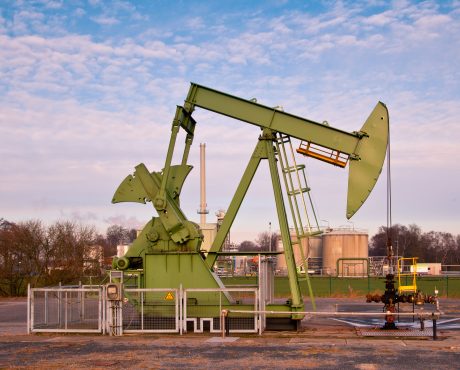Who Else Wants Higher Dividend Yields?
“Where can I find higher dividend yields right now?”
This is the most common question I hear from my readers. Rock-bottom yields and low savings rates have knocked people’s retirement plans, forcing many Americans to work longer than expected.
The stock market hasn’t helped, either. Right now, the dividend yield on the S&P 500 barely tops two percent. At that rate, even a six-figure nest egg won’t generate much in the way of investment income.
But one segment of the investment world could provide a solution: oil and gas.
Admittedly, energy stocks don’t have a reputation as safe income investments. As they say in the business, oil men go to Vegas to calm their nerves. Large swings in commodity prices can make for volatile returns.
But you can find pockets of steady investment income. Pipelines, for instance, generate reliable income and throw off lots of cash flow. Refineries, which pay out most of their profits to investors, can also make for good dividend stocks.
And the best part? Oil and gas is the least popular sector on Wall Street right now. That means investors can scoop up some high-quality businesses with respectable payouts.
To help uncover some of these hidden gems, I ran a screen for the highest-yielding dividend stocks in the energy patch. To be clear, you can’t call this the most sophisticated stock screen in the world. But the results did turn up some interesting names worthy of further research.
Let’s dig into the numbers.
| Company | Market Cap | Yield |
| Summit Midstream Partners LP | $269.8 Million | 35% |
| BP Prudhoe Bay Royalty Trust | $179.8 Million | 32% |
| Martin Midstream Partners LP | $166.0 Million | 23% |
| CONSOL Coal Resources LP | $278.0 Million | 20% |
| EnLink Midstream LLC | $2.7 Billion | 20% |
| Golar LNG Partners LP | $610.3 Million | 19% |
| Alliance Resource Partners LP | $1.5 Billion | 19% |
| Antero Midstream Corp | $3.4 Billion | 18% |
| Sprague Resources LP | $378.8 Million | 16% |
(Source: Google Finance, last accessed January 9, 2020.)
Let me make one thing clear: the table above is by no means a set of “buy” recommendations. As I said, stock screens only serve as a place to begin investment research. And right off the bat, I see a couple of stocks I would probably steer far away from.
Take pipeline owner Summit Midstream Partners LP (NYSE:SMLP), for instance. To fund an aggressive expansion campaign, management has saddled the company’s balance sheet with debt. And it’s not clear how executives will be able to pay off these loans without diluting existing unitholders.
CONSOL Coal Resources LP (NYSE:CCR) also has some red flags. The partnership collects royalties on the mining of three underground coal mines in Pennsylvania. This business, however, has struggled in recent years thanks to low natural gas prices and growing environmental regulations.
That said, you can find some interesting names here. I have long liked the investment income from royalty trusts like BP Prudhoe Bay Royalty Trust (NYSE:BPT).
These royalty trusts don’t explore for new sources of oil and gas. Instead, they’re content to milk their existing properties and pay out all their profits to unitholders. As a result, firms like BP Prudhoe Bay pay out some of the highest yields around.
Of course, these wells, along with the distributions, will eventually run dry. Payments also fluctuate with the ups and downs of the oil market. But for investors who understand the risks up front, royalty trusts make for attractive income streams.
EnLink Midstream LLC (NYSE:ENLC) also looks interesting. This firm owns a collection of pipelines, terminals, and processing plants. EnLink ships thousands of barrels of oil and natural gas each day.
I often describe these kinds of assets as the “toll roads” of the energy patch because they generate reliable fee income. An income stream, by the way, that rolls in regardless of where commodity prices move.
Bottom line: You can find some interesting ideas in the table above.
Just be sure to do your own homework before pulling the trigger on any name here. You never want to buy a stock for the high dividend yield alone. You want a real dividend-payer, not a problem business.
